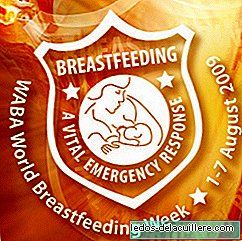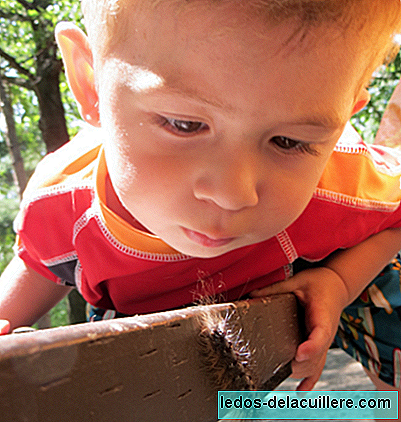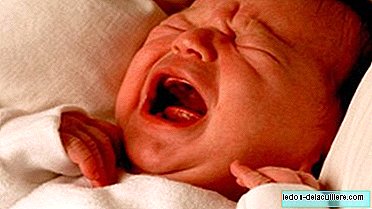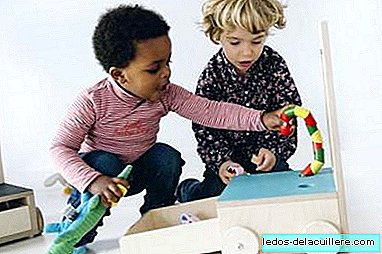We have already spoken on several occasions of the importance of taking care of food and hydration during pregnancy, because in both cases the requirements change and a deficit can cause health problems in both the mother and the baby.
Recently, the Spanish Nutrition Foundation (FEN), together with the Ibero-American Nutrition Foundation (FINUT) and the Spanish Society of Gynecology and Obstetrics (SEGO) have carried out a review of scientific studies on the feeding of the pregnant woman. We tell you what the conclusions have been and what aspects we should consider.
One in two pregnant women does not have a balanced diet
The nutritional needs of pregnant women are greater than those of non-pregnant women, and therefore it is essential maintain a complete, varied and balanced diet during this stage
However, according to studies, one in two pregnant women have significant nutritional imbalances, not reaching the recommended intake of folic acid, iodine, calcium, iron, vitamin D and Omega-3 fatty acids.These imbalances are not solved by "eating for two", as sometimes mistakenly believed, but by carrying out a balanced and varied diet, distributing the intakes in five or six daily meals, and resorting to supplements and fortified foods to ensure the correct contribution of all the necessary nutrients at this stage.
AdvertisingRecall that a correct diet during pregnancy is key to the maternal well-being and for the present and future development of the baby.
Folic acid
Folic acid is a type of vitamin B group that It helps the body in the maintenance and creation of new cells. This vitamin is essential in periods of rapid cell growth and division, especially in childhood and during pregnancy.
It is also known that the intake of folic acid before and during pregnancy helps prevent congenital spinal and cerebral defects of the baby, such as anencephaly, hydranencephaly, encephalocele and spina bifida. Therefore It is essential to maintain correct levels of this important vitamin.
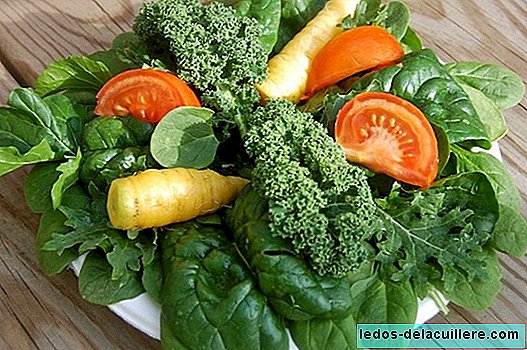
Citrus fruits, green leafy vegetables, legumes, seeds, nuts, dairy and fish are some of the foods rich in folic acid that should not be missing in our diet. But in addition, we have to supplement with a suitable vitamin complex, which we will take both before and during pregnancy, and that should contain the recommended doses of folic acid, and other nutrients such as iodine.
Iodine
Iodine is necessary for the proper metabolism of cells and plays a fundamental role in the growth and development of all organs, especially the brain. That is why iodine is so important in the diet of the pregnant mother and also during breastfeeding.

Together with the iodine supplements that we have to take during pregnancy, it is important to have a diet where we include foods such as shellfish, blue fish, legumes or vegetables, among others, without forgetting to enrich our meals with iodized salt.
Calcium and vitamin D
During pregnancy, the baby needs calcium to form strong bones and teeth, as well as a healthy heart, coagulation systems and muscles. If he does not receive enough calcium, he will "take it" from the mother's reserves, so it is essential for both the fetus and the pregnant woman that the calcium doses during pregnancy are adequate.
According to experts, milk would be the main and best source of calcium, both for the high levels it contains, and for its high bioavailability that facilitates the correct absorption by the body of this mineral. Although other foods such as cereals, vegetables, vegetables or legumes should not be missing.
"A pregnant woman needs 30 percent more calcium than any other adult person. That is why it is important to maintain a varied and balanced diet, in addition to resorting to supplements or foods fortified in calcium" - explains Professor Ángel Gil, president of FINUT .

On the other hand, vitamin D is essential for properly absorb calcium, and the best source to obtain it is through the sun, although there are also foods that contain it such as blue fish, shellfish, egg yolk, certain viscera and dairy.
Iron
Iron is important for guarantee the oxygen supply that the baby requires to grow healthy, as well as to keep anemia at bay during pregnancy, a disease that can cause complications.

Iron-rich foods would be fish, shellfish, green leafy vegetables, meat, dairy and nuts. And foods rich in vitamin C, which facilitate the absorption of this mineral, should also be included in the diet.
Omega-3 Acids
Among the multiple benefits that Omega-3 acids have during pregnancy, there would be the improvement of cognitive and neurological function in the baby, the development of its nervous system, the prevention of premature delivery and preeclamsia, and according to the latest studies it could reduce up to a third the chances of asthma in the baby.

Omega 3 It is found mainly in blue fish and shellfish, but also in other foods such as nuts, or even fortified or enriched products such as milk, eggs or cereals.
But also the pre-pregnancy and postpartum stage are important
Although taking care of our diet should be something we always do, during pregnancy we have to put a greater focus, as this will influence both the health and proper development of our baby, as well as our own well-being.
But nevertheless, we must not forget that the health of our child does not depend exclusively on how we take care of ourselves during pregnancy, since the previous and subsequent stages are also keys to your well-being.
Therefore, at the moment we plan to get pregnant we should go to a preconceptional consultation so that the doctor informs us of all the eating habits and lifestyle that we should take, as well as the vitamin supplements that we will have to start taking.
Equally, During postpartum it is essential to take care of ourselves and ensure our health, especially if we are breastfeeding our baby, because our food and well-being will also have a positive impact on our son. This is explained by Professor Ángel Gil, president of FINUT.
"The health of the child goes through the health of his mother. If the woman takes care of what she eats, it will have a positive impact on the quantity and quality of her milk, and therefore on her child. That is why it is important that once she has given birth, the mother keeps taking care of herself "In Babies and More Feeding in pregnancy, Nutrition in pregnancy


